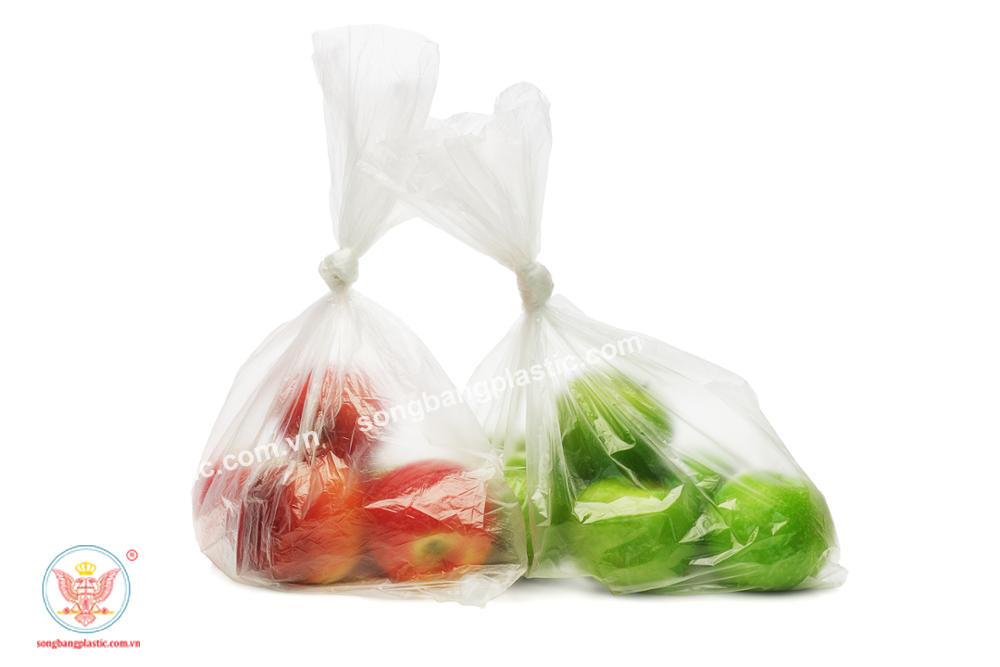When it comes to confusion around recycling, plastic is almost guaranteed to leave you standing over your recycling bin, scratching your head every once in a while.
Knowing what can be recycled is vitally important – one or two wrong items can contaminate your entire bin, which is a shame if you’ve been diligently sorting.
We know all about paper recycling and some of us even learned how to compost, but can you recycle plastic bags? The answer is less clear cut than you might think.
Since the 5p charge was introduced in 2015, plastic bag sales are down by a whopping 90 per cent. However, the UK still uses more than one billion plastic bags a year, many of which are destined to end up in landfills and as marine litter if not disposed of properly.
Are plastic bags recyclable in the UK?
The bad news? Plastic bags should not be going into your regular recycling bin. If you’ve made the mistake of chucking them in there, you’re not alone – 20 per cent of Brits have accidentally added plastic bags to their recycling bins.
Unfortunately, plastic bags can wreak havoc at recycling plants, clogging up sorting equipment, endangering workers, or leading to lots of recyclable waste going to a landfill.
The good news? There is a way to recycle them properly.
How to recycle plastic bags: 3 easy ways
- Bring your plastic bags to your local supermarket
Most UK supermarkets will take back your carrier bags and some other plastic films that contain a label with the message “recycle with carrier bags at larger stores – not at kerbside”. Collection points can be found at Tesco, Sainsbury’s, Waitrose, The Co-operative, Asda and Morrisons, amongst others.
On your next visit to the supermarket, look out for the recycling bins, usually located by the main entrance.
Supermarkets have also been participating in the reduction of plastic usage (bags and packaging), by pledging to replace single-use plastic with reusable, refillable containers. Are you also looking to reduce your use of plastic at home? Have a look at our plastic-free food storage ideas.
- Recycle plastic bags with your local council
Your area is likely to have a local recycling programme that provides a collection service, or a go-to recycling facility you can drop bags off at.
Different areas have different approaches to waste collection – some boroughs recycle more plastics than others. For specific information on where to recycle plastic bags close to home, contact your local authority or check this recycling locator.
- Recycle your plastic bags at home by reusing them
Plastic bag recycling can start at home. Before disposing of your plastic bags, consider whether they can be reused and repurposed around the house. Here are some ideas:
Use plastic bags as small bin liners
Instead of buying more bags and sending more plastic to a landfill, try using your spare carrier bags as bin liners instead.
Protect your car wing mirrors
If you’re in sub zero temperatures, you can save five minutes before work by tying a pair of plastic bags over your wing mirrors the night before – just pull them off in the morning and skip the need to scrape off that frost.
Keep your bike seat dry
If you cycle, keeping a plastic bag in the bottom of your handbag might save you a soggy bottom on the way home.
Use plastic bags in a pinch when you’re out of rubber gloves
Bags tied over hands can be used to apply polish, paint, and many other non-corrosive materials. They’re also just as useful for lining surfaces during messy art projects with little ones.
What types of plastic bags are recyclable?
Most plastic bags are eligible for recycling in some way, as they’re made of either polyethylene terephthalate (PET) or high-density polyethylene (HDPE) – recognizable by the numbers 1 and 2, at the center of the three-arrowed recycling symbol.
If you can’t see a recycling symbol, there’s a chance it will still be accepted at supermarket collection bins or at your local recycling centre, so it’s definitely worth checking.
Here are just some of the types of plastic packaging, that can be recycled at dedicated facilities (just not in your own home bin):
plastic bags
bread and veg bags
freezer bags
plastic wrappers on toilet roll and paper towel packaging
Other plastics – like bubble wrap, clingfilm or food and drink pouches – are unlikely to be recyclable and should go into your general waste bin.
For more, check out our in-depth guide to plastic recycling.
What should I do with biodegradable and compostable bags?
Biodegradable and compostable bags are becoming increasingly common. They are broken down by bacteria, or by prolonged exposure to sunlight, heat and moisture. If you have a food waste collection scheme in your area, or are making compost at home, you can include biodegradable bags and packaging there.
You should avoid putting compostable and biodegradable plastics into your standard recycling bin as they can contaminate the recycling process.
How to clean plastic bags for recycling
Only clean plastic is recyclable. Before taking your pile of plastic bags to a recycling point, it is crucial that all the materials be clean and dry. If there is any food residue, the plastic won’t be recycled as it risks contaminating the entire batch.
Here are some tips to prepare and clean your plastic bags for recycling:
Remove any contents from the bags (receipts, crumbs, stickers).
If a bag is sticky or has other residue, you can simply wash it with dishwashing soap, and rinse with water.
To dry a plastic bag, the simplest solution is to lay it out or hang it in the sun. Also, a quick wipe with a dry clean towel will do the trick.
Collect all the plastic bags into one big rubbish bag: you can easily fit 50-100 plastic bags in one large bin bag.
How to reduce your plastic bag use
Use reusable shopping or cloth bags for your weekly shop. Get into the habit of keeping some in the boot of your car and having a reusable tote in your handbag so you don’t get caught out.
Invest in reusable cloth bags for things like fruit and veg, to avoid using the single use plastic bags. These are widely available from eco stores and online.
Try to find out if you can buy things like rice, pasta, nuts and beans in bulk. There are now a growing number of “zero waste” food stores that allow you to bring your refillable containers.
Paper or plastic bags: which is better for the environment?
The short answer is that neither option is particularly eco-friendly.
While paper may seem like the greener choice, studies have shown that paper bags require four times more energy to be manufactured than their plastic counterparts.
Paper bags are also nine times heavier than plastic bags, so result in more energy being used in the transportation and recycling process.
However, paper bags are more widely accepted in recycling bins, are less likely to end up as marine debris and can biodegrade, making them the lesser of two evils for many people.
If you already have stacks of paper bags or piles of plastic ones, the greenest thing to do is to reuse them as much as you can before throwing them away. Only then should you make the switch to more long-lasting, hard-wearing alternatives (hello, cute canvas tote).

